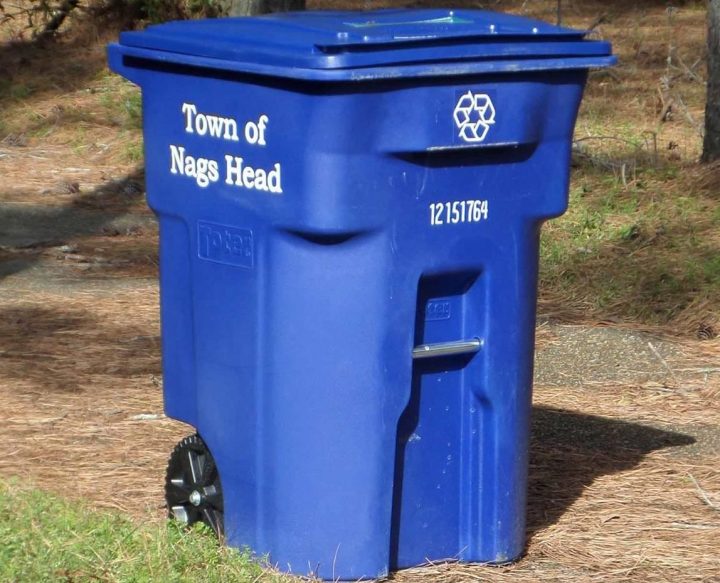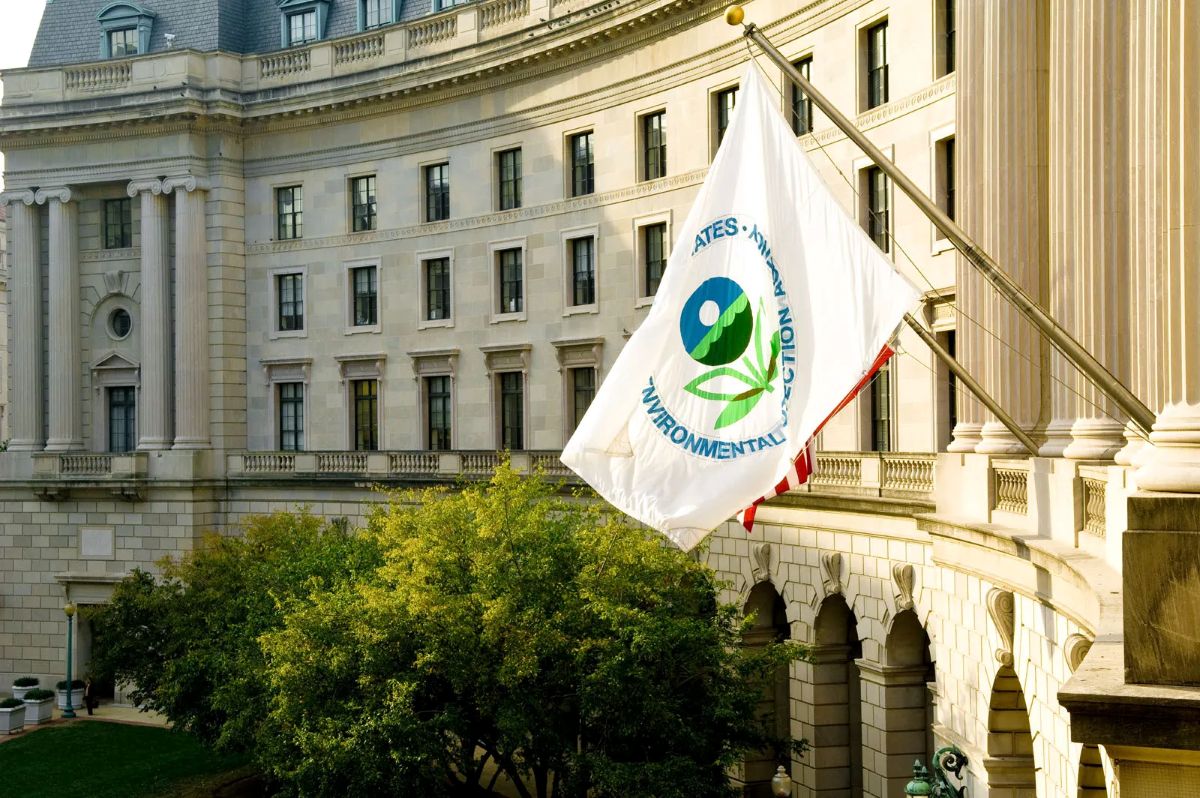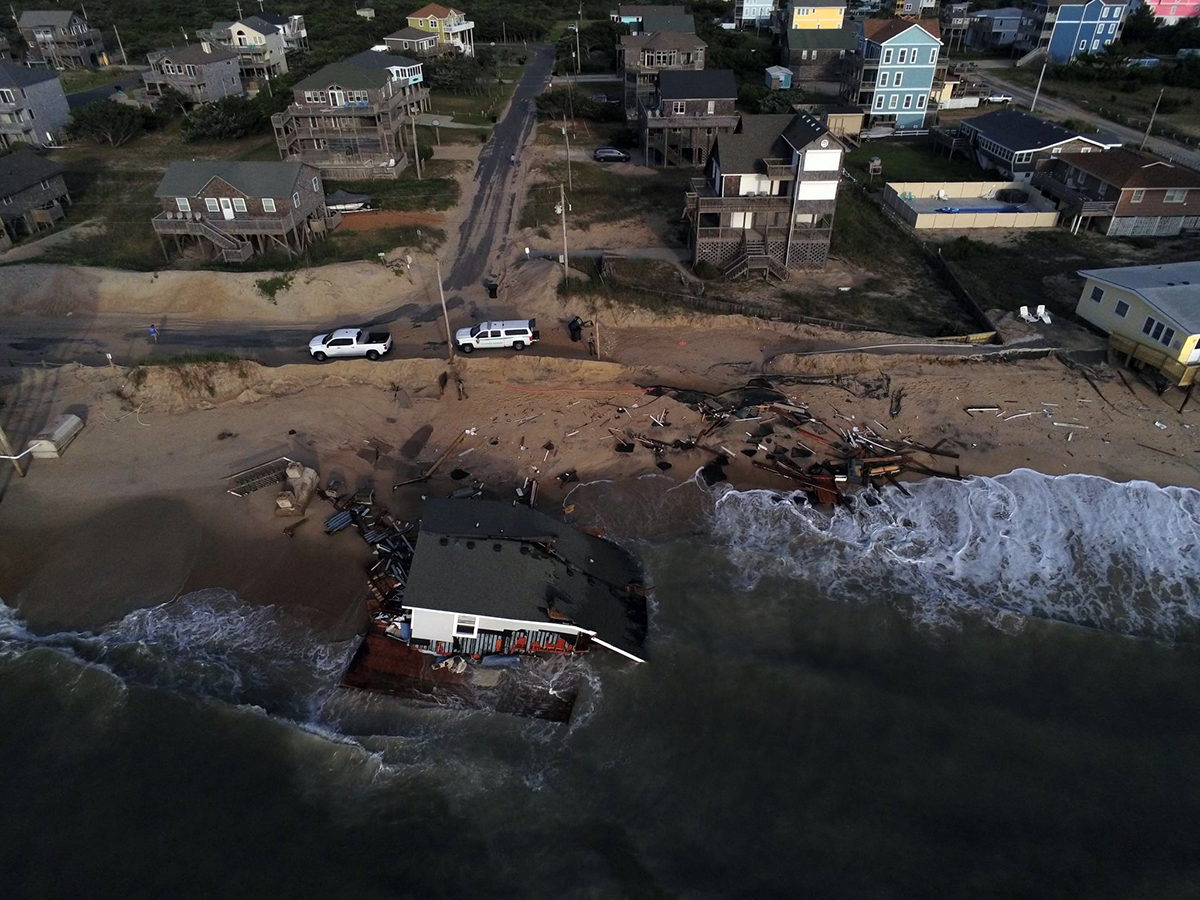
By giving Bay Disposal permission to continue diverting all of the town’s recyclables to an incinerator through the end of the fiscal year ending June 30, Nags Head has given itself time to consider alternatives for its recycling program.
Because of the changes in the recycling market, Bay Disposal has been transporting material collected by the town to a waste-to-energy facility in Portsmouth, Virginia, rather than recycling the material, which is in violation of the company’s contract with the town.
Supporter Spotlight
The Nags Head Board of Commissioners unanimously voted Wednesday to grant permission to the Norfolk, Virginia-based company to continue the diversion after learning earlier this year that it had been violating the contract. The board also decided not to change the collection schedule from two days to one during the off season.
Town Manager Cliff Ogburn reminded the board Wednesday that during its regular meeting on Jan. 7 they were informed that Tidewater Fibre Corp., a recycling center in Chesapeake, Virginia, was no longer accepting third-party material, including that from Outer Banks Hauling, because the company had not been able to sell the material.
The recycling center is where Outer Banks Hauling of Powells Point brought the town’s recyclables. Outer Banks Hauling is one of several locations in the Hampton Roads area and in northeastern North Carolina operated by Bay Disposal and Recycling, a commercial and residential waste services company.
“We are in a contract that the other party is not upholding.”
Cliff Ogburn, Town Manager, Nags Head
This violates the May 1, 2019, to Dec. 1, 2022, contract that stipulates no more than 10% by weight of all collected recyclable materials is to be taken to the landfill or incinerated without the town’s permission.
“We are in a contract that the other party is not upholding,” Ogburn said.
Supporter Spotlight
During peak visitor season, “We contract with Outer Banks Hauling at $195,000 to pick up the Beach Road every Monday and Friday every week and that’s from May to September,” he explained.
Ogburn said in an interview that the town collects the recycling year round in the west-side neighborhoods and on the Beach Road from October to April.
The town can get out of the three-year contract because of the violation as long as the company is given a 30-day cancel notice.
“The recycling industry has been negatively impacted by China’s decision to stop taking America’s recyclables,” said Ogburn in a release from the town. “We are now among the many local governments throughout the country that are revisiting their recycling programs due to cost increases.”
Ogburn continued, “We want everyone to understand that the recyclables collected currently are not being sold to a manufacturer who will re-use the material; instead, they are being incinerated in a waste-to-energy facility. While that is better than sending the material to a landfill, it is not true recycling. Our Board of Commissioners has decided to continue the current process while we investigate other fiscally-responsible and environmentally-friendly options.”
Ogburn told Coastal Review Online in a follow-up interview that there is virtually no impact from the board’s decision on the residents and that the board will reevaluate this during budget discussions.
The state Department of Environmental Quality and the executive director of the Albemarle Solid Waste Authority gave the town permission to temporarily divert recycling materials.
“We were able to divert this recycling because obviously it’s not solid waste, it’s recyclable use, and the agreement allowed for that,” he said Wednesday during the board meeting. “And then there was the question about whether or not DEQ would allow this material to be incinerated because it’s not technically recycling, it’s reuse and it’s waste energy, however it’s not recycling.”
Ogburn said that a DEQ official informed the town by letter dated Jan. 15 that they understood the town’s situation and granted permission to divert. DEQ officials said they would reexamine the decision in three months.
He added that DEQ notified the town that a vendor has shown interest in putting in a recycling facility in eastern North Carolina, but it’s too early in the process to know if that’s a realistic option. If it were to happen, “it would be a considerable amount of time from now before that came to be,” Ogburn said.
Ogburn said that the town has an agreement with the solid waste authority that requires all solid waste be brought to the Albemarle facility.
Ogburn laid out for the board a handful of alternatives including amending or ending the contract, returning to a voluntary subscription program, which some other Dare County communities participate in and Nags Head has previously, or give permission for the company to divert the material to a landfill or incinerator, an option provided in the contract.
Another option provided to the board, which they did not choose, was to reduce pickup from two days to one day a week. By going to one day a week, the town would only have the one trash truck collecting both trash and recycling at the same time on the same day and taking all the material to a landfill, according to the agenda.
The unanimous decision came after a discussion among the board members about what would be the best approach and making sure the process was transparent.
Mayor Ben Cahoon mentioned that he had spoken with commissioners in other Dare County towns also trying to navigate this issue and are concerned with the ultimate outcome.
He and other elected officials attended Tuesday the monthly Outer Banks Restaurant Association meeting, where recycling was one of the topics.
“If you have an ABC license, you’re obligated to some degree of recycling, and so they’re (businesses that serve alcohol) concerned about what form the programs begin to take and are also talking among themselves about initiatives that would make them a little more sustainable,” he said.
The restaurateurs also discussed grinding glass onsite.
“The biggest problem is the program’s not what we’ve always said it was, it’s not full recycling, it’s partial recycling,” he said about the changes.
Commissioner Webb Fuller emphasized that the public should be fully informed about the position the town is in and if the town is recycling or not.
“Do we leave a bigger carbon footprint by doing something that we don’t have an analysis on yet?”
Webb Fuller, Nags Head Commissioner
Fuller was also concerned about the carbon footprint.
“Do we leave a bigger carbon footprint by doing something that we don’t have an analysis on yet? To wit, moving it from here to somewhere and then into an incinerator, may,” he said. “I don’t know, because nobody has given me that information yet, but that may leave a bigger carbon footprint than recycling. I don’t want to go that way unless I know what that answer is.”
Fuller suggested suspending the recycling program because he didn’t want to spend the town’s money under the false representation that the material was being recycled.
The mayor echoed Fuller, saying that he too was concerned about the carbon footprint. He said that while they tried to research the information online, they would like to have an authoritative answer about which carbon footprint is smaller.
“I think more answers are needed,” he continued.
“We are not recycling, we are diverting, but we’re not recycling,” said Commissioner Renee Cahoon, who also serves as chair of the state Coastal Resources Commission. “I think we all agree that we need a lot more information than what we have today in order to make the best informed decision as we move forward in the upcoming fiscal year.”








